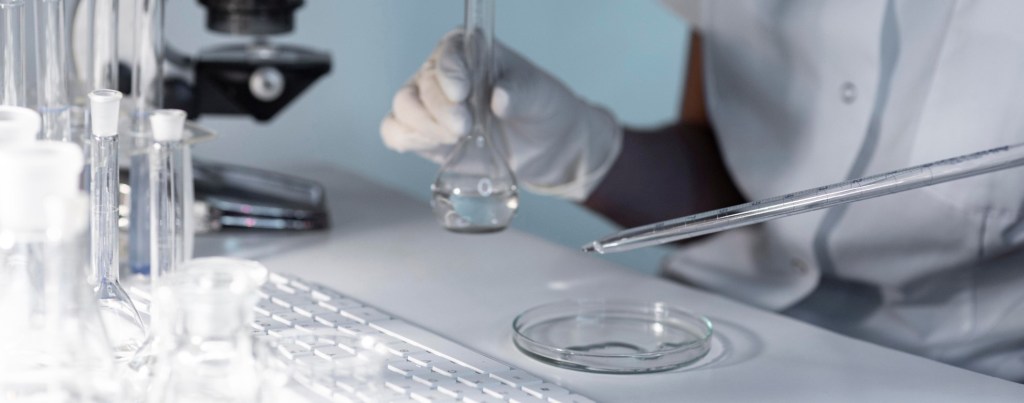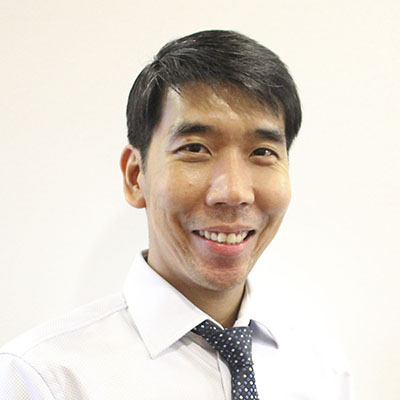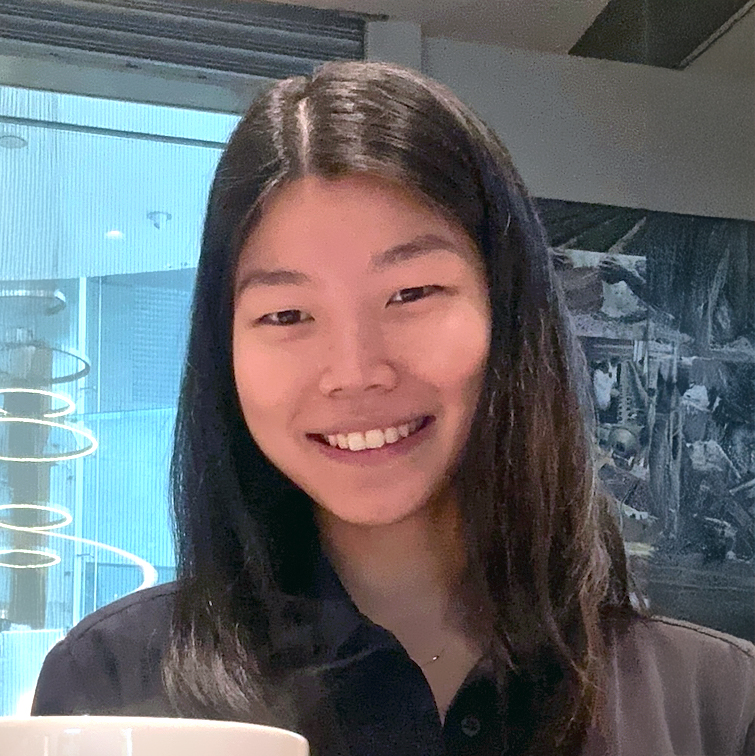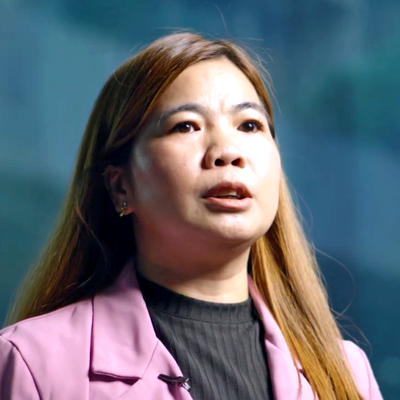
OVERVIEW
Higher Diploma in Biomedical Science
The Higher Diploma in Biomedical Science provides students with a solid foundation in key biomedical disciplines, including human anatomy, microbiology, molecular biology, and clinical laboratory techniques. This program equips learners with the technical and analytical skills necessary for careers in biomedical research, diagnostics, and healthcare innovation.
Through hands-on laboratory training and industry-relevant coursework, graduates will be well-prepared to contribute to the development of medical technologies, disease prevention strategies, and diagnostic solutions. Biomedical Science explores the human body and the various disorders that can impact its function.
The study begins with an in-depth examination of normal biological processes, from entire organ systems down to cellular, molecular, and genetic mechanisms. It then delves into a wide spectrum of diseases and disorders, including infections caused by bacteria and viruses.
This program also serves as a pathway to further studies in biomedical sciences, medical research, or specialized healthcare fields, enabling graduates to stay at the forefront of advancements in medical science.
12 months | Full-time
12 months |Part-time
Practical and theoretic modules
Guided career sessions
MODULES
A programme to designed to explore beyond subject knowledge
By the end of the programme a Higher Diploma in Biomedical Science provides students with the essential skills and knowledge to pursue career opportunities in Biomedical Laboratory Technologist, Medical Research Assistant, Clinical Diagnostics Specialist, Biotechnology Associate and Pharmaceutical Laboratory Technician.
Biochemistry
This module provides a foundational understanding of core biochemistry concepts essential for your studies. It covers chemical bonding, reactivity, kinetics, and thermodynamics, linking these principles to protein structure, enzyme function, and metabolic processes. You’ll explore enzyme kinetics, biochemical regulation, and energy generation, including key metabolic pathways for carbohydrates, fatty acids, and proteins. By the end of the module, you will gain a strong grasp of the interplay between chemistry and biology in human biochemical processes. This module introduces core chemical concepts essential for understanding biological sciences, focusing on protein and enzyme structure, biochemical reactions, and energy metabolism. Students will engage in tutorials, workshops, and practical sessions to explore enzyme kinetics and develop key skills in data analysis, presentation, and scientific communication.
Clinical Techniques in Biomedical Science
This module introduces key biomedical science disciplines, with a focus on Cellular Pathology and Medical Microbiology. Learning is delivered through digital content, seminars, tutorials, and case-based learning (CBL), supported by practical sessions in anatomy, histology, and microbiology. Taught by research-active lecturers and Biomedical Scientists, the module explores the structure and function of hospital pathology labs and disease investigation. Tutorials and CBL sessions use real clinical cases to link theory to practice and build communication skills. Assessments include audiovisual tests, reports, and practical skills, and an understanding of pathology from both clinical and NHS perspectives.
Integrated Human Physiology and Anatomy
This module introduces students to the normal human anatomy and physiology, covering major body systems, including the digestive, nervous, neuromuscular, respiratory, cardiovascular, excretory, immune, reproductive, and endocrine systems. It also explores how dysfunctions or deficiencies in these systems can lead to various pathologies. Building on practical experience.
Principles of Molecular and Cellular Biology
This module introduces molecular cell biology, focusing on the cell as the basic unit of life. You will explore the subcellular structures of prokaryotic and eukaryotic cells, the diversity of cells within multicellular organisms, and how they interact and communicate. Key topics include the role of cellular membranes, important signalling pathways, and the processes by which genetic information in DNA is transcribed into RNA and translated into proteins. The module also examines the transmission of genetic information across generations and the control of gene expression. You will study the structure of nucleic acids and compare transcription and translation in prokaryotic and eukaryotic cells. The application of bacterial DNA-processing enzymes in recombinant DNA technology and the bioethical implications of genomic research will also be covered. Core lectures are delivered asynchronously, with interactive workshops and support sessions to develop problem-solving, communication, and analytical skills. The module aims to provide foundational knowledge of molecular cell biology and its applications.
Laboratory Techniques in Life Sciences
This module focuses on developing core practical skills essential for your bioscience studies, particularly in laboratory and fieldwork. Throughout the study period, students will engage in hands-on sessions where students will practice preparative, analytical, and observational techniques, ensuring you understand safe equipment usage and proper laboratory practices. Students will also enhance their abilities in data recording, analysis, and interpretation through tasks and maintaining a lab/field notebook. To successfully complete the module, students must attend at least 70% of practical classes and perform well in a practical skills assessment. In addition, the module includes workshops and tutorials that foster academic, career, and employability skills, preparing you for further studies and future career opportunities. The primary aim is to equip students with the necessary practical skills and competencies for advanced coursework and professional development.
Computational Thinking for Life Sciences
The aim is to enhance students’ computational thinking skills by immersing them in the abstract, algorithmic, and logical aspects of computer science, while introducing key computational concepts. This process involves presenting a motivating biological problem and providing the relevant biological background, which is usually brief given students’ existing knowledge in biology. The next step is to formulate the problem in computational terms, introducing appropriate concepts and programming techniques needed to implement these ideas. Students will then reflect on the entire process, highlighting the fundamental computational thinking skills they have developed. The focus will be on the relevance of the topic to life sciences research and practice, and how the topic can help students engage with computational thinking and culture. The module covers a broad range of biological and computational topics, making it suitable for a wide audience within the life sciences.
Genetic and Protein Engineering Technologies
This module delves into the study and manipulation of genetic material, covering techniques like sequencing, gene cloning, and genetic engineering. You will explore how these methods can be applied to examine the structure and function of individual genes and proteins, as well as how to design and engineer DNA molecules to create novel gene products, such as therapeutic drugs. Through tutorials and workshops, you’ll gain hands-on experience with introductory bioinformatics tools and engage with important ethical considerations, fostering strong reasoning and analytical skills. Additionally, the module aims to boost your confidence in discussing experimental design and interpreting protocols and methods in academic research.
Advanced Immunology: Molecular and Cellular Perspectives
In this module, you will explore how the mammalian body responds to infections caused by various pathogens, focusing on the cellular mechanisms of the immune system and the processes involved in generating and selecting the immune repertoire. You will also investigate the structure and function of immune proteins, as well as pathogens like viruses and bacteria. The module will cover the role of antibodies in immune responses, provide access to protein databases, and explore the connection between protein structure and function. The course aims to deepen your understanding of immune defence mechanisms, including the role of cell death, and to explore the use of antibodies in immunological research and techniques.
Biomedical Science in Clinical Practice
This module is designed to build on the core practical skills acquired in earlier studies by enhancing your expertise in a broader range of laboratory and field-based techniques used in the biosciences. You will further develop key skills in handling biological samples and analysing environmental data, while expanding your proficiency in both established and new methodologies relevant to your subject area. The module also focuses on improving your abilities in recording and interpreting data, conducting experiments, and applying analytical thinking. Additional tutorials and workshops will support your growth in wider academic skills, reinforcing your capability to carry out effective scientific investigations.
Laboratory Techniques in Bioscience
Building on student’s previous module BMLS 1104 Laboratory Techniques in Life Sciences, this module delves deeper into the vital role Biomedical Scientists play in patient-centred healthcare, with a particular focus on Blood Sciences. Students will explore the key areas of Clinical Biochemistry, Immunology, Haematology, and Transfusion Science, gaining insight into how these disciplines contribute to disease diagnosis, monitoring, and treatment. Topics include the biochemical assessment of organ function, the investigation of autoimmune and allergic conditions, the diagnosis and management of blood and bone marrow disorders, and the principles of blood-grouping and cross-matching. Through case-based learning and group discussions, students will apply theoretical knowledge to real-life clinical scenarios. The module also aims to strengthen students’ skills in independent disease research and in communicating findings effectively to diverse audiences, preparing them for common challenges faced by practitioners in the field.
Metabolism in Health and Disease
In this module, you will delve into the specialization and interdependence of metabolism within the body, exploring how metabolism is affected by both inherited and acquired diseases such as obesity, diabetes, atherosclerosis, and cancer. Key topics will include metabolic regulation, particularly the hormonal control of insulin and glucagon, as well as the metabolic activity of different muscle fiber types in relation to exercise and disease. Tutorials and workshops will involve group discussions, case studies, and data analysis exercises to reinforce the module’s content, alongside independent study. Students will undertake a more independent, inquiry-based approach to learning, focusing on experimental design and critical evaluation of primary scientific literature. The module aims to cover metabolic regulation, tissue responses to the starve-feed cycle, and changes in metabolic activity due to inherited and acquired diseases. It will also explore the absorption, metabolism, and excretion of xenobiotics, with a focus on their role in pharmacokinetics.
Scientific Research Methods and Data Analytics
This module will introduce you to various types of scientific research, including systematic reviews, bioinformatics, and pedagogic studies, in addition to traditional lab and field-based research. You will gain an understanding of different experimental designs, which will be essential for your final year projects and further postgraduate studies. The module will focus on data analysis, teaching you how to perform statistical tests and interpret the results in the context of biological research. Assessments will include a group task where you critically evaluate a research paper and present it at an online conference, as well as two individual assessments based on a given dataset. By the end of the module, you will have developed the skills needed for your final year research projects. The aim of this module is to develop research and analytical skills that are valuable across a wide range of life science disciplines and transferable to various professional careers.
Full programme structure and learning outcomes
Get detailed breakdowns and learn about the advantages of learning with LSBF Singapore.
what to expect
Kickstart Your Career in Biomedical Science
Programme Aims
The Higher Diploma in Biomedical Science (HDBMS) course aims to provide students with the knowledge and skills to:
- Equip students with fundamental knowledge, practical skills, and a deep understanding of Biomedical Science.
- Provide the necessary competencies to meet the Allied Health Professions Council (AHPC) under the Ministry of Health (MOH) Standards of Education and Proficiency, ensuring eligibility to work as a Biomedical Scientist in clinical diagnostic laboratories. health-professional/application-for-registration
- Develop skilled, motivated graduates prepared for further studies or diverse career opportunities within and beyond the biomedical field.
- Foster a strong interest in biosciences, particularly at the cellular and molecular levels, within a supportive and intellectually enriching learning environment.
- Enhance employability by cultivating critical thinking, numeracy, and problem-solving skills valued across various scientific and analytical professions.
- Encourage independent research abilities, preparing students for postgraduate study and advanced scientific inquiry.
Learning Outcomes
Subject-Specific Skills
Graduates will be proficient in:
- Utilizing a variety of laboratory techniques for data collection and analysis in biomedical science
- Designing, conducting, analysing, and evaluating biomedical experiments
- For biomedical science programs in Singapore, adherence to WSH, NEA, HSA, guidelines ensure compliance with local safety and quality standards.
Intellectual Skills
Graduates will be able to:
- Evaluate competing scientific theories and develop well-reasoned arguments
- Identify, analyse, and solve problems independently and collaboratively
- Make evidence-based decisions and critically assess scientific information
- Extract, synthesize, and interpret both qualitative and quantitative scientific data
- Take responsibility for their learning and reflect on their academic progress
- Produce well-structured, academically sound documents with appropriate referencing
- Understand and uphold principles of academic and research integrity
Key Employability Skills
Graduates will be equipped with transferable skills applicable to various professional settings, including:
- Effective learning strategies, time management, flexibility, creativity, and intellectual integrity
- Ability to gather, analyse, synthesize, and present information from diverse sources (textual, numerical, verbal, graphical)
- Competency in processing and presenting data using appropriate software (e.g., statistical programs, spreadsheets, and data visualization tools)
- Effective use of the Internet and digital resources for research and communication
- Strong written, verbal, and graphical communication skills, using scientific terminology appropriately
- Collaboration and teamwork, with respect for diverse perspectives and collective problem-solving
- Self-directed learning, organizational skills, and knowledge application in real-world contexts
- Sustained motivation and the ability to engage in continuous professional development
- Proper citation and referencing to maintain academic integrity and prevent plagiarism
Skills you will acquire

$92,000+
median Singapore salary for Accounting
483,000+
Singapore job openings in Accounting
75%
of graduates report positive career outcome
programme structure
mode of delivery
Lectures, Tutorial, Seminars, Workshops, Case study and Exercises, Group work project and presentations, Consultation, Class Discussion
Assessment Methods and Graduation Requirements
Assessment Methods:
Continuous assessment, Formative and Summative Assessments
Any combination of class participation, group or individual assignments, online quizzes/online tests, portfolios, written exams etc.,
Graduation Requirements:
Students must complete and pass all required modules in this programme to receive the graduation certificate.
Attendance Requirements
International Students: 90%
Local, PR, non-student pass: 75%
Teacher student ratio
1: 40
STUDENT SUPPORT SERVICES
Why choose LSBF for your education
Study Materials
Students will receive study materials after they have made full payment for their programme. Replacement of study materials is subject to additional charge.
Student Portal
Students have access to the Student Portal. It is a useful site where the course information and learning materials are available for students’ easy reference.
Accessible Faculty
Students may contact their lecturers directly via email outside the lecture hours for any academic related queries.
Recorded Lectures
We will show compassion and care to all stakeholders as we believe the journey is as important as the outcome.
ELIGIBILITY
Who can apply for this programme
entry requirement
Local students shall possess one of the following:
- Three passes in GCE A Level Examinations including two Science subjects, and you may also need GCSE Maths or
- International Baccalaureate (24 points)
- Local Polytechnic Diploma or any other relevant diploma in any engineering or science related field
- Completion of LSBF Diploma in Biomedical Science (applicants can apply to transfer any recognized prior learning credits by applying for Advanced Standing); or
- Vocational Diploma in relevant field of study; or
- Other equivalent qualifications
International students shall possess one of the following:
- Completion of Year 12 High School Qualification in science subjects or equivalent qualification from respective home countries and will also need: year 10 Maths; or
- Completed International Baccalaureate (24 points); or
- Equivalent Polytechnic Diploma in any engineering or science field in respective home countries; or
- Completion of LSBF Diploma in Biomedical Science (applicants can apply to transfer any recognized prior learning credits by applying for Advanced Standing); or
- Vocational Diploma in a relevant field of study; or Other equivalent qualifications.
Minimum English Language Entry Requirement
Both local and international students MUST fulfil the minimum English language entry requirement of one of the following:
- Achieved a grade C6 or better in English language O level; or
- Pass in English Language in Year 10 High School qualification or equivalent; or
- IELTS 6.0/TOEFL 79 on the iBT; or
- Completed LSBF Preparatory Course in English Advanced Level; or
- Dynamic Placement Test or Duolingo 90-115 test score.
Students with non-standard entry requirements (e.g., other PEI qualification, lack of equivalent Year 12 in home country, Mature candidates will be assessed on a case-by-case basis through LSBF internal placement test and oral assessment subject to approval of the Academic Board.
Minimum Age
- 18 years or above
TUTION FEES
SGD $12,818.40
(local students)
SGD $16,568.00
(international students)





















